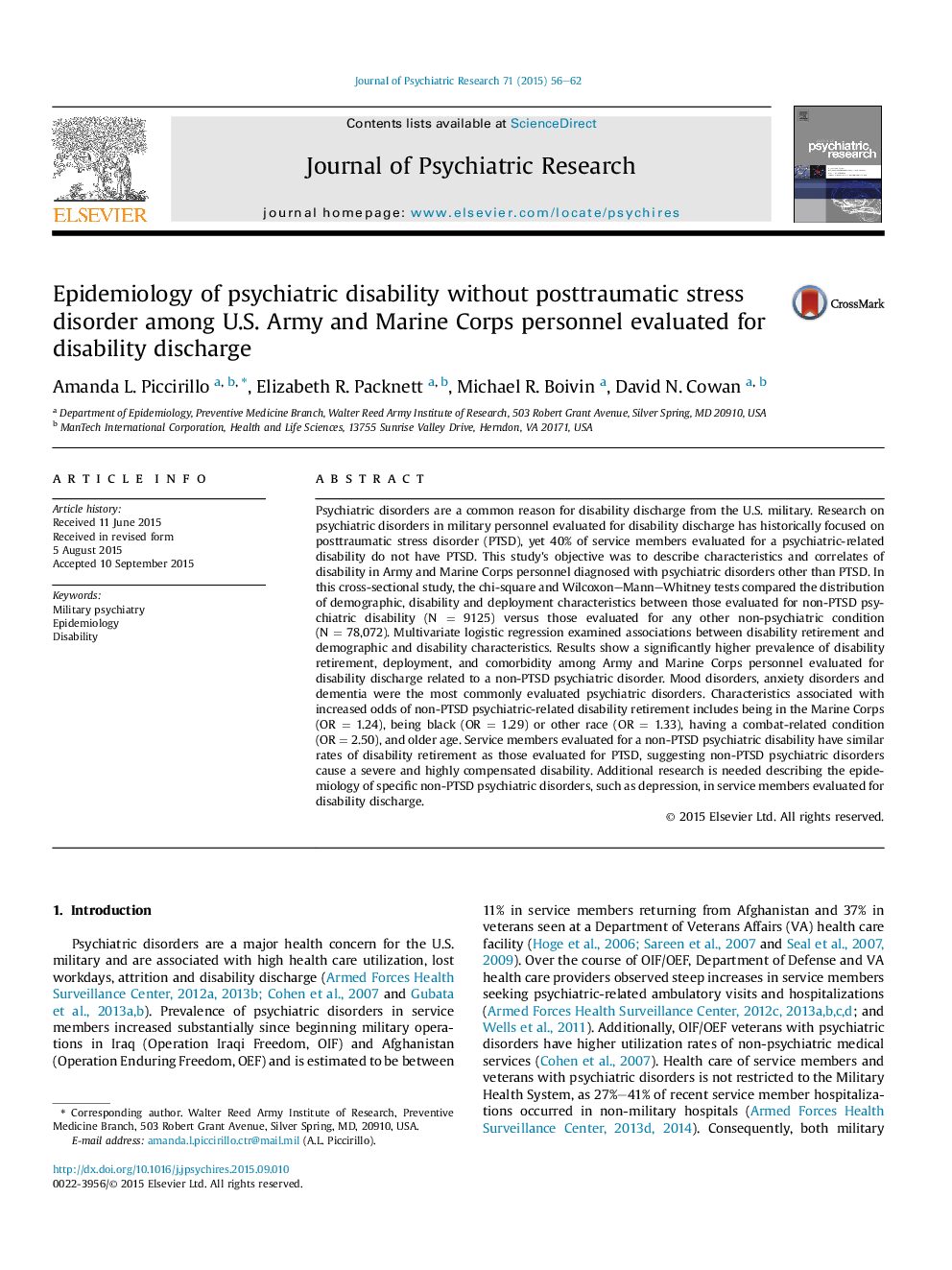| Article ID | Journal | Published Year | Pages | File Type |
|---|---|---|---|---|
| 327267 | Journal of Psychiatric Research | 2015 | 7 Pages |
•Mood disorders, anxiety disorders and dementia were the most commonly evaluated.•Higher prevalence of disability retirement, deployment, and comorbidity was seen.•Increased odds in Marines, non-white race, older age and combat exposed.•Similar rates of disability retirement as those evaluated for PTSD.•Non-PTSD psychiatric disorders cause a severe and highly compensated disability.
Psychiatric disorders are a common reason for disability discharge from the U.S. military. Research on psychiatric disorders in military personnel evaluated for disability discharge has historically focused on posttraumatic stress disorder (PTSD), yet 40% of service members evaluated for a psychiatric-related disability do not have PTSD. This study's objective was to describe characteristics and correlates of disability in Army and Marine Corps personnel diagnosed with psychiatric disorders other than PTSD. In this cross-sectional study, the chi-square and Wilcoxon–Mann–Whitney tests compared the distribution of demographic, disability and deployment characteristics between those evaluated for non-PTSD psychiatric disability (N = 9125) versus those evaluated for any other non-psychiatric condition (N = 78,072). Multivariate logistic regression examined associations between disability retirement and demographic and disability characteristics. Results show a significantly higher prevalence of disability retirement, deployment, and comorbidity among Army and Marine Corps personnel evaluated for disability discharge related to a non-PTSD psychiatric disorder. Mood disorders, anxiety disorders and dementia were the most commonly evaluated psychiatric disorders. Characteristics associated with increased odds of non-PTSD psychiatric-related disability retirement includes being in the Marine Corps (OR = 1.24), being black (OR = 1.29) or other race (OR = 1.33), having a combat-related condition (OR = 2.50), and older age. Service members evaluated for a non-PTSD psychiatric disability have similar rates of disability retirement as those evaluated for PTSD, suggesting non-PTSD psychiatric disorders cause a severe and highly compensated disability. Additional research is needed describing the epidemiology of specific non-PTSD psychiatric disorders, such as depression, in service members evaluated for disability discharge.
